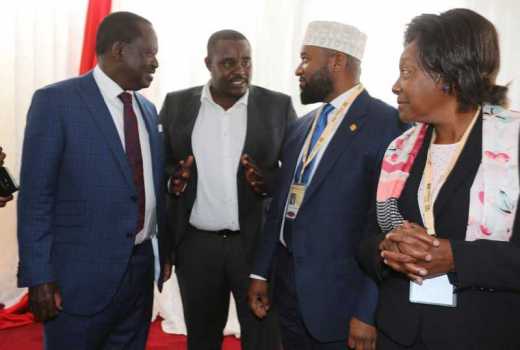×
The Standard e-Paper
Home To Bold Columnists

Former Prime Minister Raila Odinga wants the country to adopt a three-tier government that will see the formation of 14 regional blocs.
On Wednesday Raila told delegates at the fifth devolution conference in Kakamega it was time the country revisited the structure of governance to address the issue of economic viability of counties.